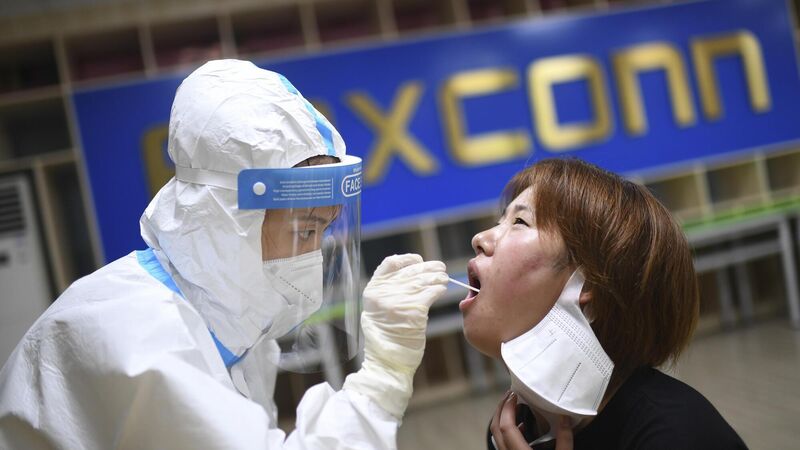Sales surge at Apple supplier Foxconn in January

A medical worker takes a swab sample to test for Covid-19 from a worker at the Foxconn factory in Wuhan in central China's in August 2021.
Taiwan's Foxconn, the world's largest contract electronics maker and major iPhone assembler for Apple, said its revenue in January jumped over 48% from a year earlier, as it shook off Covid disruptions in China.
Revenue in January reached a record high of $22bn (€20.3bn), with operations returning to normal and shipments increasing at its Zhengzhou campus in China, a centre for iPhone production, the company said.












